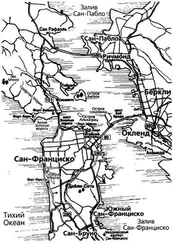Satisfied that he was unobserved, Smith turned to the left, took two steps and bit off an exclamation as he tripped over some unseen object and fell his length in the snow. He rolled over three times in the snow just in case any bystander might have a knife or gun and homicidal ideas about using them, then got to his feet with cat-like speed, his Mauser in one hand, his pencil-flash in the other. He snapped on the torch and swung round in a 360° turn. He was alone.
Alone, that was, but for the crumpled form over which he had tripped, an Alpenkorps sergeant lying face-down in the snow, a form lying still and curiously relaxed in that huddled shapelessness of death.
Smith stooped and rolled the figure over to expose the great red stain in the snow where the body had been lying. The pencil-flash rested briefly on the front of the tunic, a tunic gashed and soaked in blood. The beam of the torch moved up to the face. No more cloisters for this don, Smith thought in irrational emptiness, no more honey still for tea, and the fault is all mine and I can see it in his face. The already dulled and faded eyes of Torrance-Smythe stared up at him in the sightless reproach of death.
Smith straightened to his feet, his face remote and withdrawn, and quartered the immediate ground area with his light. There were no signs of a struggle but struggle there must have been, for some tunic buttons had been ripped off and the high collar torn open. Smithy had not died easily. Flash still in hand, Smith walked slowly along to the mouth of the narrow alleyway, then stopped. A confusion of foot-prints, dark smears of blood in the trodden snow, dark bare patches on the wooden walls of the Gasthaus where struggling men had staggered heavily against it – here was where the struggle had been. Smith switched off the light, returned both torch and gun to their hiding-places and stepped out into the street. On the one side was ‘Zum Wilden Hirsch’ with the sound of singing once again emanating from it, on the other side a brightly-lit telephone kiosk outside a Post Office. In the kiosk, talking animatedly on the telephone, was a uniformed figure, a soldier Smith had never seen before. The street itself was deserted.
Schaffer leaned negligently against the bar, the picture of complete and careless relaxation. His face belied him. It was grim and shocked and he was savagely shredding a cigarette between his fingers.
‘Smithy!’ Schaffer’s voice was a low and vicious whisper. ‘Not Smithy! You sure , boss?’
‘I’m sure.’ Smith’s face still held the same remote and withdrawn expression, almost as if all feeling had been drained from him. ‘You say he left in a hurry three minutes after I’d gone. So he wasn’t after me. Who else left?’
‘No idea.’ Schaffer snapped the cigarette in half, dropped it to the floor. ‘The place is packed. And there’s another door. I can’t believe it. Why old Smithy? Why Torrance-Smythe. He was the cleverest of us all.’
‘That’s why he’s dead,’ Smith said sombrely. ‘Now listen carefully. It’s time you knew the score.’
Schaffer looked at him steadily and said: ‘It’s more than time.’
Smith began to speak in a very low voice, in fluent completely idiomatic German, careful that his back was turned to the Gestapo officers at the far end of the bar. After a minute or two he saw Heidi returning to the room through the doorway behind the bar but ignored her as she ignored him. Almost immediately afterwards a gradual diminution in the babel of talk, followed by an almost complete silence, made him fall quiet himself and follow the direction of the gaze of hundreds of soldiers all of whom were looking towards the door.
There was reason for the silence, especially good reason, Smith thought, for soldiers almost totally cut off from womankind. Mary Ellison, clad in a belted rain-coat, with a scarf over her head and a battered suitcase in her hand, was standing in the doorway. The silence seemed to deepen. Women are rare at any time in a high Alpine Gasthaus , unaccompanied young women even rarer and beautiful young women on their own virtually unknown. For some moments Mary stood there uncertainly, as if unsure of her welcome or not knowing what to do. Then she dropped her bag, and her face lit up as she caught sight of Heidi, a face transformed with joy. Marlene Dietrich in The Blue Angel , Smith thought inconsequentially. With a face and a figure and an acting talent like that, she could have had Hollywood tramping a path of beaten gold to her doorstep . . . Through the silent room she and Heidi ran toward one another and embraced.
‘My dear Maria! My dear Maria!’ There was a break in Heidi’s voice that made Smith reflect that Hollywood might have been well advised to tramp out two paths of beaten gold. ‘So you came after all!’
‘After all these years!’ Mary hugged the other girl and kissed her again. ‘It’s wonderful to see you again, Cousin Heidi! Wonderful, wonderful, wonderful! Of course I came. Why ever not?’
‘Well!’ Heidi made no effort to lower her voice as she looked around significantly. ‘They’re a pretty rough lot, hereabouts. You should carry a gun, always. Hunter battalion, they call themselves. They’re well named!’
The soldiers broke out into a roar of laughter and the normal hubbub of sound resumed almost at once. Arm in arm, Heidi led Mary across to the small group of civilians standing at the far end of the bar. She stopped in front of the man in the centre of the group, a dark, wiry, intelligent-faced man who looked very very tough indeed, and performed the introductions.
‘Maria, this is Captain von Brauchitsch. He – um – works in the Schloss Adler. Captain, my cousin, Maria Schenk.’
Von Brauchitsch bowed slightly.
‘You are fortunate in your cousins, Heidi. We were expecting you, Miss Schenk.’ He smiled. ‘But not someone as beautiful as this.’
Mary smiled in turn, her face puzzled. ‘You were expecting–’
‘He was expecting,’ Heidi said dryly. ‘It is the captain’s business to know what is going on.’
‘Don’t make me sound so sinister, Heidi. You’ll frighten Miss Schenk.’ He glanced at his watch. ‘The next cable-car leaves in ten minutes. If I might escort the young lady–’
‘The young lady is going to my room first,’ Heidi said firmly. ‘For a wash-up and a Kaffee-Schnapps. Can’t you see that she’s half-dead with cold?’
‘I do believe her teeth are chattering,’ von Brauchitsch said with a smile. ‘I thought it might have been me. Well, the cable-car after the next one, then.’
‘And I’m going with her,’ Heidi announced.
‘Both of you?’ Von Brauchitsch shook his head and smiled again. Von Brauchitsch was always smiling. ‘My lucky night.’
‘Permits, travel documents, identity cards and letters you have,’ Heidi said. She fished up some papers from the recesses of her Tyrolean blouse and handed them to Mary who was sitting across from her on the bed in her room. ‘Plan of the castle and instructions. Do your homework well then give them back to me. I’ll take them up. You might be searched – they’re a suspicious bunch up there. And drink up that Schnapps – first thing von Brauchitsch will do is to smell your breath. Just to check. He checks everything. He’s the most suspicious of the lot.’
‘He seemed a very pleasant man to me,’ Mary said mildly.
‘He’s a very unpleasant Gestapo officer,’ Heidi said dryly.
When Heidi returned to the bar, Smith and Schaffer had been rejoined by Carraciola, Thomas and Christiansen. All five appeared to be carefree in their drinking and chatting inconsequentially, but their low and urgent voices were evidence enough of the desperate worry in their minds. Or in the minds of some of them.
Читать дальше
Конец ознакомительного отрывка
Купить книгу










